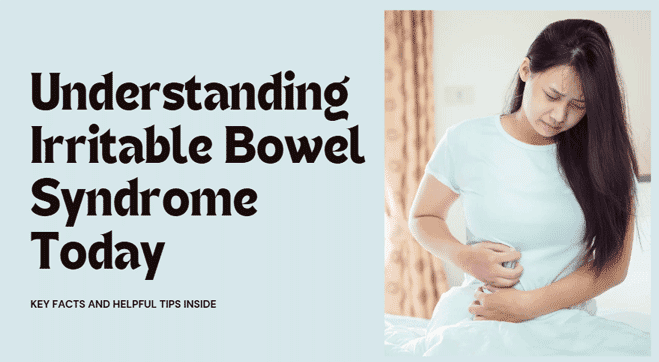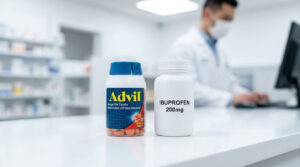Introduction
Inflammatory bowel disease is a condition that results in issues related to the passing of stools along with pain and discomfort in and around the abdominal area. If not treated on time, IBS can give rise to further complications. That is why it is crucial to understand inflammatory bowel syndrome symptoms, causes, diagnosis and treatment options. In the below sections, we have given an overview of these along with a list of foods to avoid with IBS.
Do you know:
- Depending on the criteria of diagnosis, IBS, that is, irritable bowel syndrome symptoms, impacts almost 11% of people around the globe. 1
- Among these, people above the age of 50 are 25% less likely to get diagnosed with IBS (inflammatory bowel disease) symptoms.
- Apart from this, the same report also concluded that South Americans have the highest prevalence of inflammatory bowel disease symptoms, with the prevalence rate being 21%.
What Is Irritable Bowel Syndrome?
Irritable bowel syndrome, commonly called IBS (IBS and IBD are not the same), is a condition that negatively affects your digestive system and gives rise to stomach and bowel-related problems. As a result, you suffer from irritable bowel syndrome symptoms. These can range from diarrhoea to constipation, along with several others that result in abdominal pain.
The treatment for IBS involves the use of IBS medications along with an IBS diet plan and other IBS natural remedies. Along with these, depending on the exact causes of irritable bowel syndrome, you might also be suggested to take IBS diarrhoea treatment or IBS constipation treatment.
However, the most concerning fact about irritable bowel syndrome is that, in most cases, it lasts for a lifetime, and you have to learn to manage and live with it. To do this, you can opt for a low fodmap diet for IBS after becoming aware of your irritable bowel syndrome symptoms and causes. 2
Causes of Irritable Bowel Syndrome
Experts suggest that the exact causes of irritable bowel syndrome cannot be identified easily. However, based on observations and studies, it is concluded that there are a variety of causes that work together to produce irritable bowel syndrome symptoms. 3
Hence, here are some of the possible causes of irritable bowel syndrome:
1. Lack Of Coordination Between the Nervous System and Your Stomach
Your brain, gut health and IBS are directly related. This is because your brain and your stomach interact with each other to digest food and to produce sensations such as those of pain in your stomach. These are controlled by the gut-brain axis. Therefore, if there are any changes in this connection (between the stomach and the brain), then it can lead to irritable bowel syndrome symptoms. 4
2. Mental Health Disorders
The health of your brain has a great role to play in your digestive functioning. That is why another of the prominent causes of irritable bowel syndrome is the presence of a condition that leads to the production of excessive stress.
Likewise, some mental health disorders that can give rise to the need for IBS medications include the following:
- Depression
- Anxiety
- Somatic Symptom Disorder
3. Imbalances In the Gut Bacteria and Bacterial Infections
The bacteria present in your stomach and intestines have an active role to play in your digestive processes. That is why if there is a development of bacterial infection in any part of your digestive tract, it directly becomes one of the causes of irritable bowel syndrome. This happens because of the correlation between your gut health and IBS.
Apart from this, an overproduction of bacteria in your small intestine or drastic changes in the nature (or type or behaviour) of bacteria present there can also lead to irritable bowel syndrome symptoms. This can bring forth the need for IBS medications.
4. Childhood Trauma
If you have undergone severe distress in your childhood, then you are more likely to suffer from irritable bowel syndrome symptoms in the later phases of your life. In this case, the possible causes of irritable bowel syndrome can be—
- Physical abuse in childhood
- Sexual abuse in childhood
- Growing up under extremely stressful conditions
5. Food Allergies
Certain food items can also trigger irritable bowel syndrome symptoms. This is because some people are more sensitive towards specific foods. As a result, their bodies cannot properly digest such foods, which ultimately produces allergy symptoms.
In this case, the body will either digest the food too quickly or take longer than usual to absorb and eliminate it from your body. This becomes one of the causes of irritable bowel syndrome and makes it necessary for you to get an idea about what foods you must avoid to treat IBS.
Symptoms of Irritable Bowel Syndrome
Irritable bowel syndrome symptoms depend upon the causes of irritable bowel syndrome. Likewise, they can be mild to moderate to severe, depending on your personal situation.
Common Symptoms of Irritable Bowel Syndrome
The common irritable bowel syndrome symptoms include—
Abdominal or stomach pain: It worsens after you have your food. This kind of pain usually subsides soon after you defecate (pass a stool).
Bloating: Bloating refers to the swelling of your stomach, which makes you feel uncomfortable and excessively full.
Diarrhoea: In diarrhoea, you might have an urgent need to defecate, and your stools would be too liquid in consistency.
Constipation: Constipation is the opposite of diarrhoea. Hence, when you have constipation, you might—
- Find it painful to defecate.
- Even after defecating, you might not feel that your stomach is completely empty.
Less Common and Severe Symptoms of Irritable Bowel Syndrome
The less common symptoms of irritable bowel syndrome include—
- Too much farting, called flatulence
- The release of mucus from your anus
- Lack of energy
- Excessive tiredness
- Nausea and feeling sick
- Problems with urinating normally. These can include pain while urinating, frequent need to use the washroom, and not feeling completely empty after urinating.
- Bowel incontinence (inability to control the urge to urinate) 5
Types of Irritable Bowel Syndrome
The IBS meditations that you will be prescribed, along with other options for the treatment of IBS, depend on what type of inflammatory bowel disease you have. Likewise, based on your irritable bowel syndrome symptoms and causes, you can have any of the following types of IBS—
1. IBS-C
The C, in the name of IBS-C, stands for constipation. Inflammatory bowel disease with constipation is one of the most common types of IBS.
It is characterised by—
- Abdominal pain
- Gas
- bloating
- Fewer bowel movements
- Experiencing pain while defecating
2. IBS-D
IBS-D is the inflammatory bowel syndrome with diarrhoea. The symptoms of this type of IBS are completely opposite to those of IBS-C. Hence, in this case—
- Most of your stools will be loose
- You will have an increased urge to defecate
- You might also experience abdominal pain and excessive gas
3. IBS-M
This type of IBS results in inflammatory bowel syndrome symptoms that are a combination of both IBS-C and IBS-D.
Apart from this, two other types of IBS include—
- Post-Infectious (I) IBS
- Post-Diverticulitis IBS 6
How To Diagnose IBS?
To diagnose IBS, your health care expert will first ask you about your irritable bowel syndrome symptoms. Following this, they might recommend certain tests to identify the main causes of irritable bowel syndrome and suggest the best possible treatment for IBS. However, there is no one particular test designed specifically for the diagnosis of IBS.
Hence, to diagnose IBS, here are the possible tests that you can take:
- Blood tests
- Tests that are performed on the sample of your urine or faeces
- Analysis of your medical history as well as family history of digestive disorders
- A physical exam to know if you have abdominal bloating
Apart from the identification of the causes of irritable bowel syndrome, you might also be suggested several other tests to detect associated problems, such as—
- Intestinal bacterial overgrowth
- Colon cancer
- Celiac disease
- Inflammatory bowel disease
- Other digestive problems 7
Treatment Options for IBS
The treatment for IBS depends on the causes of irritable bowel syndrome, the severity of its symptoms and personal factors like—
- Age
- Gender
- The presence of some other medical condition
- The medicines that you take regularly (if any)
Foods TO EAT With IBS
The natural treatment for IBS includes consuming foods rich in fibre. These foods also work great for IBS constipation treatment because fibre helps in soft stools.
Here are a few examples:
- Beans
- Fruit
- Oat products 8
- Probiotics
Best Probiotics For IBS
The digestive processes that happen inside your body depend on certain types of bacteria. That is why having a balanced amount of these bacteria is important for the smooth functioning of your digestive system and ultimately avoiding inflammatory bowel disease symptoms. Hence, the best probiotics for IBS aim at restoring this bacterial balance along with providing additional health benefits.
So, here are 2 of the best probiotics for IBS:
- Lactobacillus
- Bifidobacterium 9
Foods TO AVOID With IBS
For IBS abdominal pain relief, it is a must to avoid certain foods that trigger the symptoms of IBS. Here is a list of such foods:
- Insoluble fibre
- Gluten
- Dairy products
- Fried foods
- Beans
- Legumes
- Caffeinated drinks
- Processed foods
- Sugar-free sweeteners
- Chocolate
- Alcohol
- Garlic
- Onions
- Cruciferous vegetables
Low FODMAP Diet For IBS
FODMAP is the short form for–
- F = Fermentable
- O = Oligosaccharides
- D = Disaccharides
- M = Monosaccharides
- A = And
- P = Polyols
In simpler terms, the above-mentioned are the types of carbohydrates that your intestines cannot absorb easily. Hence, a low FODMAP diet for IBS comprises foods that you must avoid as part of IBS natural remedies. Examples of such foods include—
- Most dairy products
- Apples
- Cherries
- Mango
- Beans
- Lentils
- Cabbage
- Cauliflower
- Wheat
- Rye
- High fructose corn syrup
- Sorbitol
- Maltitol
- Xylitol
On the other hand, the foods that you can have when you are on a low-FODMAP diet for IBS include—
- Fish
- Meats
- Eggs
- Butter
- Oils
- Hard cheeses
- Lactose-free dairy products
- Bananas
- Grapes
- Oranges
- Pineapple
- Carrots
- Celery
- Eggplant
- Green beans
- Pumpkin
- Spinach
- Potato
- Rice
- Millet
- Cornmeal
- Tofu
- Pumpkin seeds
- Sesame seeds
- Sunflower seeds 10
IBS Medications
The IBS medications you need depend on the type of IBS that you have. This can include constipation and diarrhoea-centred IBS as well as IBS-M, which is a combination of both.
Medications for IBS diarrhoea treatment—
- Loperamide
- Rifaximin (Xifaxan)
- Eluxadoline (Viberzi)
- Alosetron (Lotronex)
Medications for IBS constipation treatment—
- Fiber supplements
- Laxatives
- Lubiprostone (Amitiza)
- Linaclotide (Linzess)
- Plecanatide (Trulance)
IBS medications for abdominal pain—
- Antispasmodics
- Antidepressants
- Capsules that are coated with peppermint oil
Living with IBS
To live healthily and minimise your irritable bowel syndrome symptoms, you can also try some other natural remedies for IBS, such as–
- Reducing stress
- Getting more quality sleep
- Doing physical exercises regularly
Other than IBS natural remedies, you can also opt for professional mental health therapies like—
- Cognitive behavioural therapy
- Gut-directed hypnotherapy
- Relaxation training 11
Conclusion
All in all, irritable bowel syndrome symptoms can be treated by using the right type of IBS medications and timely detection of the causes of irritable bowel syndrome. Likewise, the treatment for IBS involves a combination of dietary and lifestyle changes along with the use of IBS natural remedies and IBS medications.
Sources
Ref Links:
- The epidemiology of irritable bowel syndrome
- What is IBS?
- Symptoms & Causes of Irritable Bowel Syndrome
- Neurotransmitter Dysfunction in Irritable Bowel Syndrome
- Irritable bowel syndrome (IBS)
- What Are the Different Types of Irritable Bowel Syndrome
- Diagnosis of Irritable Bowel Syndrome
- Eating, Diet, & Nutrition for Irritable Bowel Syndrome
- Probiotics — even inactive ones — may relieve IBS symptoms
- 12 Foods to Avoid with IBS
- Treatment for Irritable Bowel Syndrome








